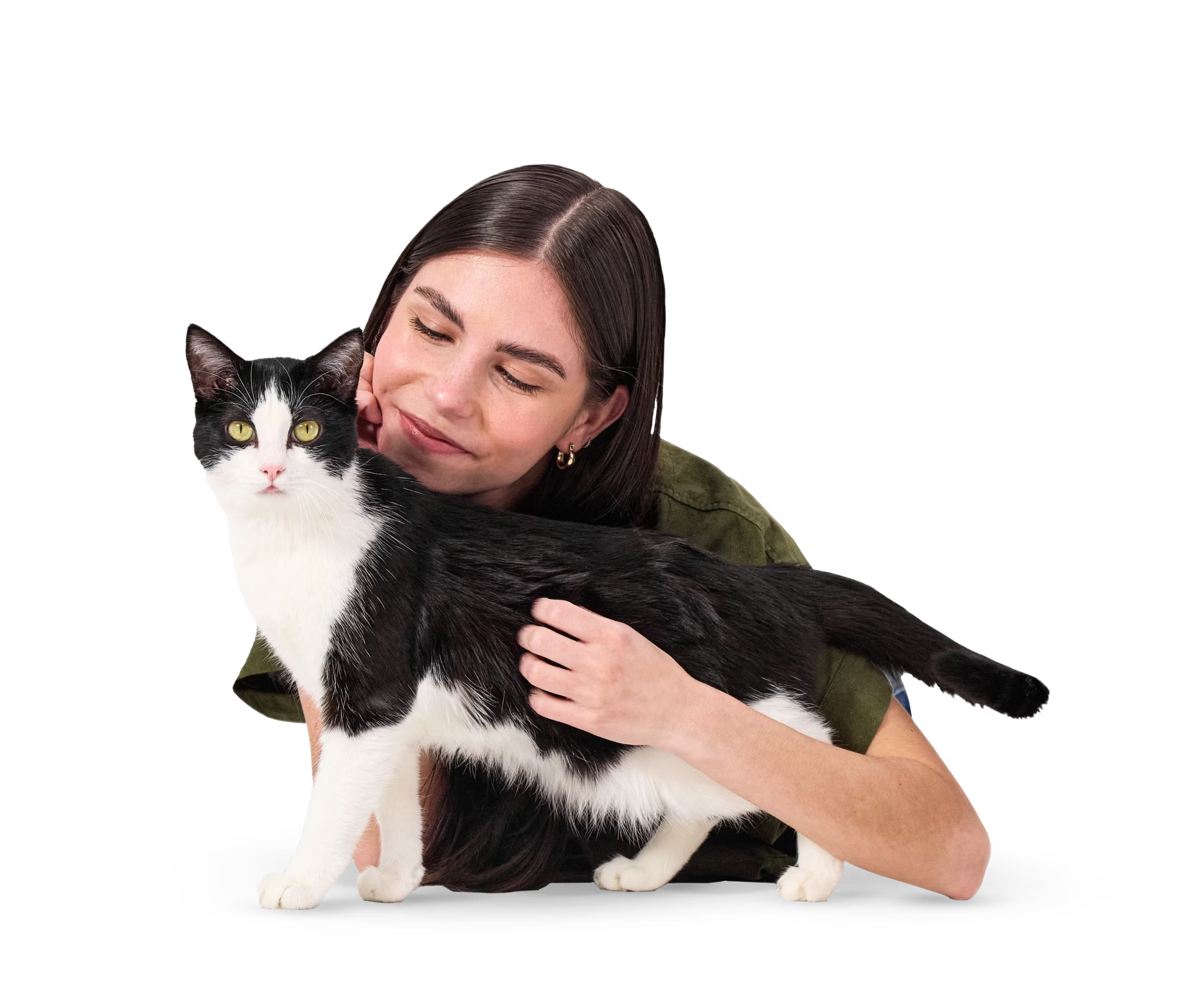Mucopolysaccharidosis Type VI
Mucopolysaccharidosis Type VI is a rare disorder causing dwarfism, degenerative joint disease, and clouding of the eyes.
Found in
1 in 560 cats
in our testing
Key Signs
Dwarfism, Facial dysmorphia, Corneal clouding, Degenerative joint disease
Age of Onset
0 to 2 yrs
Juvenile onset
Inheritance
Autosomal Recessive
For autosomal recessive disorders, cats with two copies of the variant are at risk of developing the condition. Cats with one copy of the variant are considered carriers and are usually not at risk of developing the disorder. However, carriers of some complex variants grouped in this category may be associated with a low risk of developing the disorder. Individuals with one or two copies may pass the disorder-associated variant to their kittens if bred.
Likelihood of the Condition
High likelihood
At risk cats are highly likely to show signs of this disease in their lifetime.
What to Do
Here’s how to care for a cat with MPSVI
Partner with your veterinarian to make a plan regarding your cat’s well-being, including any insights provided through genetic testing. If your pet is at risk or is showing signs of this disorder, then the first step is to speak with your veterinarian.
For Veterinarians
Here’s what a vet needs to know about MPSVI
Mucopolysaccharidosis Type VI is a rare lysosomal storage disease caused by deficient activity of the N-acetylgalactosamine-4-sulfatase enzyme, which is used to break down dermatan and chondroitin sulfates. This results in the accumulation of glycosaminoglycans (GAGs) in various types of cells which eventually progresses to cellular damage. The typical form of the disease causes dwarfism, reduced flexibility, facial dysmorphia, corneal clouding, degenerative joint disease, and abnormal leukocyte inclusions (with prominent cytoplasmic granules). Affected cats may also have heart valve thickening. Clinical signs typically first appear in kittens at six to eight weeks of age and affected individuals tend to remain cognitively normal. MPS VI follows an autosomal recessive mode of inheritance. Cats with two copies of this variant (also known as T1427C mutation) exhibit the typical form of the disease as described above. Cats with one copy of the Mucopolysaccharidosis Type VI variant (T1427C mutation) and one copy of the Mucopolysaccharidosis Type VI Modifier variant (often referred to as the G1558A mutation) have an increased risk of presenting with a mild form of the disease, manifesting as degenerative joint disease only.
There is high interest in research for safe and effective treatments of MPS disorders in cats, with options such as enzyme replacement therapy and gene therapy showing promise. At present time, however, the most widely available therapy is limited to supportive care. The lifespan of an affected cat is dependent on severity of the individual's condition, and quality of life should be monitored closely.
For Breeders
Planning to breed a cat with this genetic variant?
There are many responsibilities to consider when breeding cats. Regardless of test results it is important that your cat is in good general health and that you are in a position to care for the kittens if new responsible owners are not found. For first time or novice breeders, advice can be found at most cat registry websites.
This disease is autosomal recessive meaning that two copies of the variant are needed for disease signs to be shown. A cat with one copy of the Mucopolysaccharidosis Type VI variant and zero copies of the Mucopolysaccharidosis Type VI Modifier variant can be safely bred with a clear cat with no copies of these variants. About half of the kittens will have one copy of the Mucopolysaccharidosis Type VI variant and will be considered carriers. Kittens in a litter which is expected to contain carriers should be tested prior to breeding. Carrier to carrier matings are not advised as the resulting litter may contain affected kittens. Please note: It is possible that disease signs similar to the ones caused by the MPSVI variant could develop due to a different genetic or clinical cause.
Technical Details
| Gene | ARSB |
|---|---|
| Variant | T>C |
| Chromosome | A1 |
| Coordinate | 145,138,869 |
All coordinates reference FelCat9.0
We’ve spent the past 20+ years devoted to DNA. Our team of scientists and vets have spent decades developing the most accurate pet DNA test. Because every pet deserves to have their whole story told. We’ve collaborated with leading academic institutions, innovative research labs, and Banfield Pet Hospital™ to make our process exceptionally precise, fast, and affordable.

References & Credit
Credit to our scientific colleagues:
Crawley, A. C., Yogalingam, G., Muller, V. J., & Hopwood, J. J. (1998). Two Feline Mucopolysaccharidosis Type VI Mutations with Three Phenotypes Two Mutations within a Feline Mucopolysaccharidosis Type VI Colony Cause Three Different Clinical Phenotypes. In J. Clin. Invest (Vol. 101, Issue 1). http://www.jci.org [View the article](https://doi.org/10.1172/JCI935, https://doi.org/10.1172/JCI935)